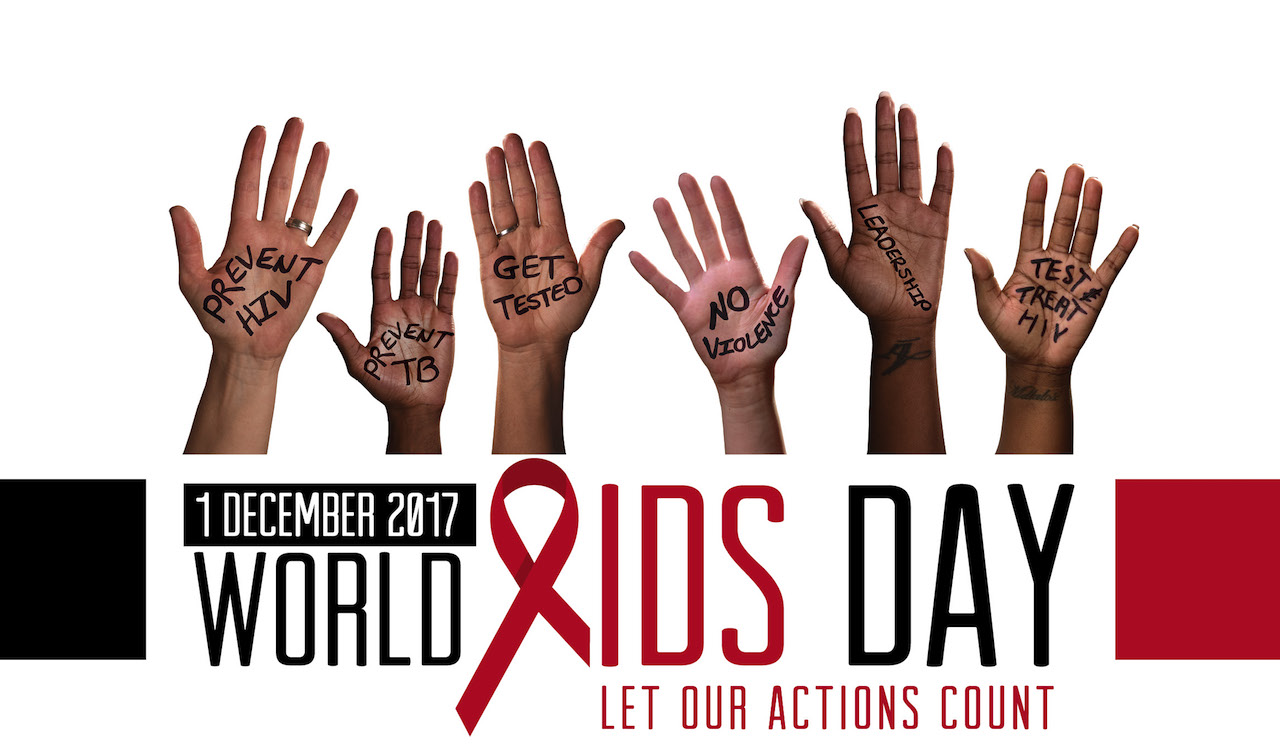Can you believe that the war against HIV has been going on for 35 years!? Since the beginning of the war, we lost many battles, but we still have a good chance to win the war.
Since the start of this war, 78 million people around the world have become infected with HIV and 35 million people have died of AIDS-related illnesses.
In 2016, one third of all new infections in Sub-Sahara Africa came from South Africa, and the latest figures show that around 7.1 million people are currently living with HIV.
If we want to take this war to full victory, we need to stick to our battle-plan:
Phase 1: Prevention
- Before 2001 up to 30% of babies born to HIV positive mothers tested positive for the virus at six weeks of age. As of 2016 this had dropped to around 1.4%! At the core of this success is South Africa’s program for the prevention of mother-to-child transmission which was launched in 2002. It is believed that it may even be possible to eliminate HIV in children altogether!
- Between 2007 and 2010, the distribution of male condoms increased by 60%. Female condom distribution increased from 3.6 million to 5 million
- By 2011, more than 150,000 medical male circumcisions had been conducted with an estimated one new HIV infection averted for every five procedures done.
- In 2016 South Africa began an HIV vaccine trial, the first time in 7 years that such a big project to combat HIV has happened. The trial aims to enrol 5,400 men and women, making it the largest and most advanced HIV vaccine clinical trial to date in South Africa.
What YOU can do:
- Never have unprotected sex. Have a condom ready, so you don’t get caught off guard.
- If you are HIV positive and pregnant, make sure you know what medication to take, to prevent transmission to your baby.
- If you know any HIV positive moms-to-be, encourage them to get to Ante natal clinic, and make sure they take their medication.
Phase 2: Testing
- Between 2008 and 2012, annual HIV testing increased from about 19% to 38% in men, and from 29% to 53% in women.
- A campaign launched in 2013 targeted testing in the private sector, farms and higher education. By 2015, an additional 9.5million tests were done, taking the total number of HIV tests since the 2010 campaign began to 35 million
- In 2015, take-home HIV tests were made available for sale to the public, making testing easier and discreet.
What YOU can do:
- Get tested at least once a year, especially if you have multiple sexual partners.
- Never have unprotected sex.
- Share your status, and inspire others to do the same.
Phase 3: Treatment
- South Africa has the largest antiretroviral therapy programme in the world! Estimates are that ours is larger than the size of India, Zimbabwe, Kenya and Mozambique’s programs combined.
- In 2000, only 90 people in South Africa were taking medication. By 2016, more than 3 million people were receiving treatment!
What YOU can do:
- If you are HIV positive, get into an HIV clinic ASAP, and attend all your appointments.
- If you know someone with HIV, support them – help them to make their clinic dates, and offer help to remind them to take their medication. Winning this war will have to be a team-effort!
Join the campaign for World Aids Day this year. The theme is “Right to Health”. Without their right to health, people cannot prevent HIV get access to treatment and care. Everyone counts, and everyone has a fundamental right to health.
Since that everyone includes YOU, here’s how you can get involved:
- What does “right to health” mean to you? Post a picture of yourself realising your right to health by exercising, eating a nutritious meal, breathing clean air, having a blood test or buying condoms. Encourage your friends and family to do the same. Include the hashtag #myrighttohealth.
- Get involved in Red Ribbon Friday. Wear a red ribbon to work or svarsity every Friday, take a pic and share it. Use the hashtags #RedRibbonFriday, #WAD2017 and #PreventionRevolution
- Know your status, know your numbers. If you are HIV positive, ensure you take your medication as prescribed and go for your regular check ups.
- Stay safe. While the vaccine trial is underway, its important to focus on prevention. Make sure you follow the standard HIV prevention guidelines.
- Stay informed. Knowledge is power so keep up to date with the latest news and developments in the fight against HIV.
References
https://africacheck.org/reports/yes-south-africa-has-the-worlds-largest-antiretroviral-therapy-programme/
https://www.avert.org/professionals/hiv-around-world/sub-saharan-africa/south-africa
https://www.health-e.org.za/2017/08/23/deaths-rates-declined-due-hiv-success-report/
http://www.hst.org.za/publications/Pages/HST-South-African-Health-Review-2017.aspx
http://ewn.co.za/2017/11/20/unaids-21-million-hiv-positive-people-receiving-treatment
https://www.niaid.nih.gov/news-events/first-new-hiv-vaccine-efficacy-study-seven-years-has-begun

